Ever wondered about the tiny, speckled eggs you often find in Asian markets? They’re not just a culinary curiosity – quail eggs are a nutritional powerhouse, packed with essential vitamins, minerals, and antioxidants. While they may be smaller than chicken eggs, they offer a unique set of benefits that make them a worthy addition to your diet. Let’s delve into the world of quail eggs and discover why they’ve gained popularity as a superfood.
What Are Quail Eggs?
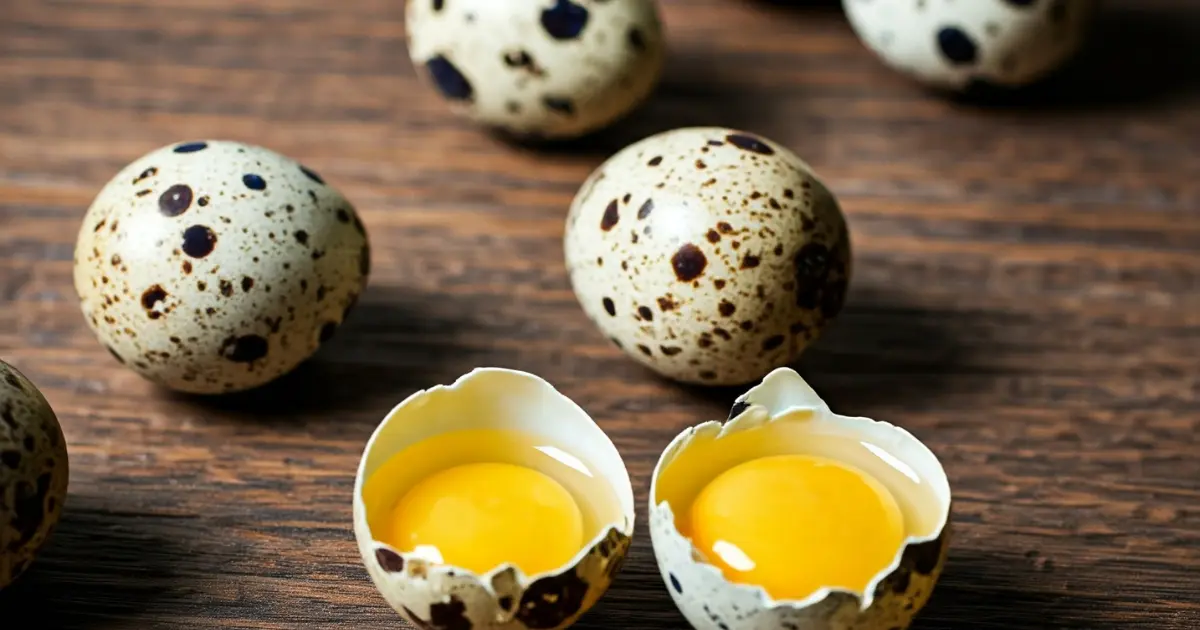
Quail eggs are small, speckled eggs from quail birds. They’re known for their cream-colored shells with brown spots and are a popular choice among health-conscious consumers and gourmet chefs. Typically, quail eggs are about one-third the size of chicken eggs, but their nutritional profile is impressive.
Nutritional Value of Quail Eggs vs. Chicken Eggs
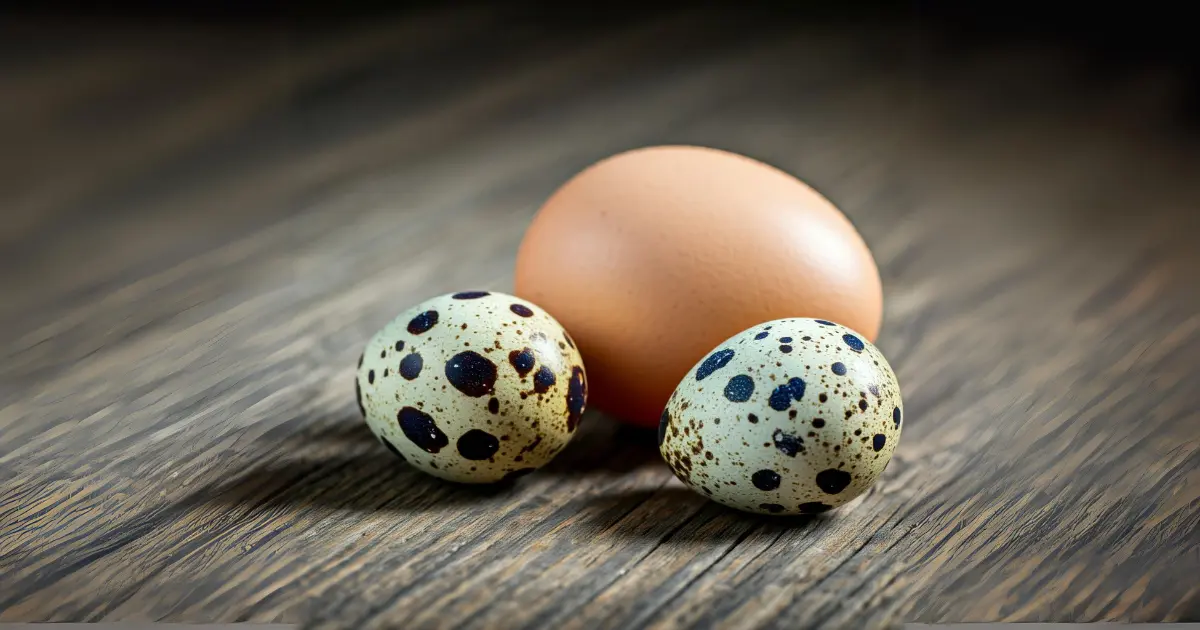
| Nutrient | Quail Eggs (1 large, ~9g) | Chicken Eggs (1 large, ~50g) |
| Calories | 14 | 70 |
| Protein | 1.2g | 6.3g |
| Fat | 1g | 5g |
| Vitamin A | 5% of DV | 6% of DV |
| Vitamin B12 | 10% of DV | 5% of DV |
| Iron | 2% of DV | 3% of DV |
| Choline | 6mg | 147mg |
Note: DV = Daily Value; data sourced from USDA.
Quail eggs have slightly more vitamins B12 and A per gram and offer a richer taste, making them a unique choice in gourmet dishes.
Health Benefits of Quail Eggs
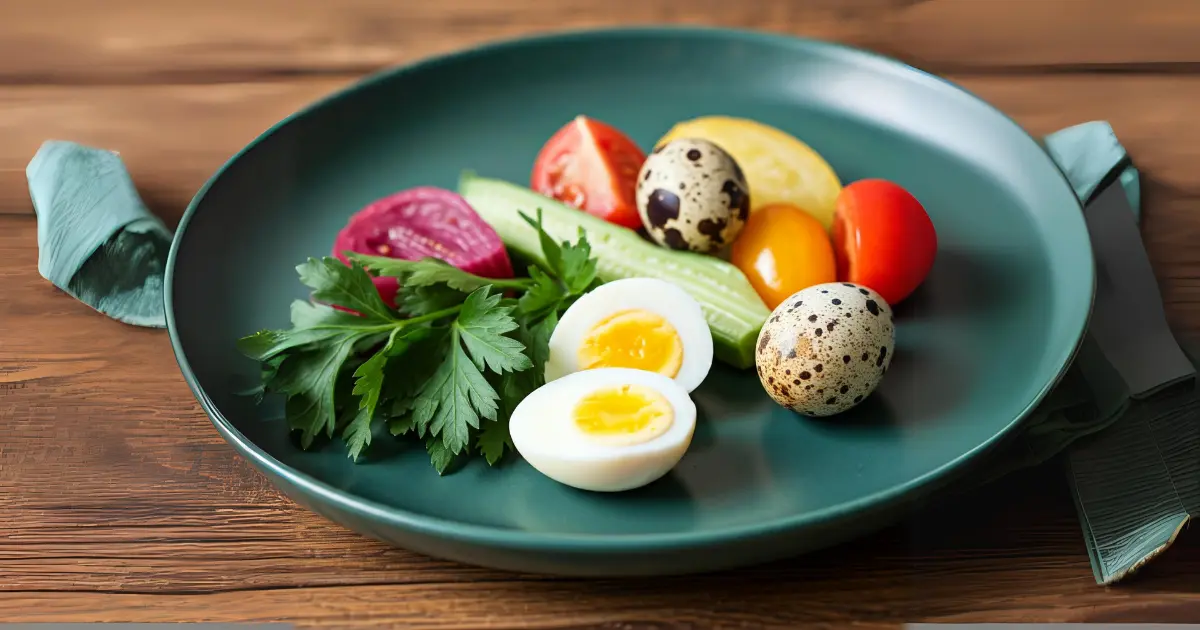
- High Nutrient Density
Quail eggs are nutrient-packed, offering protein, vitamins A, D, and B12, as well as minerals like selenium and iron. Their small size makes them convenient for snacks or meal enhancers. - Good Source of Choline
Choline supports brain health and memory function. Quail eggs offer choline in a smaller, nutrient-dense package, making them ideal for busy lifestyles. - Rich in Antioxidants
These eggs contain antioxidants that help reduce inflammation. They also have higher levels of beneficial amino acids, which help support muscle growth and immune health.
To learn more about the benefits, check the article linked below:
How to Cook Quail Eggs

Quail eggs are versatile and can be cooked in many ways:
- Hard-Boiled: Boil for about 2–3 minutes for soft yolks, or 4–5 minutes for fully hard-boiled.
- Fried: Fry in a non-stick pan with minimal oil for a quick, protein-packed addition to breakfast.
- Pickled: These eggs make excellent snacks when pickled with vinegar, herbs, and spices.
Want to know more about the cooking of quail eggs? Check the article linked below:
Comparing with Chicken Eggs
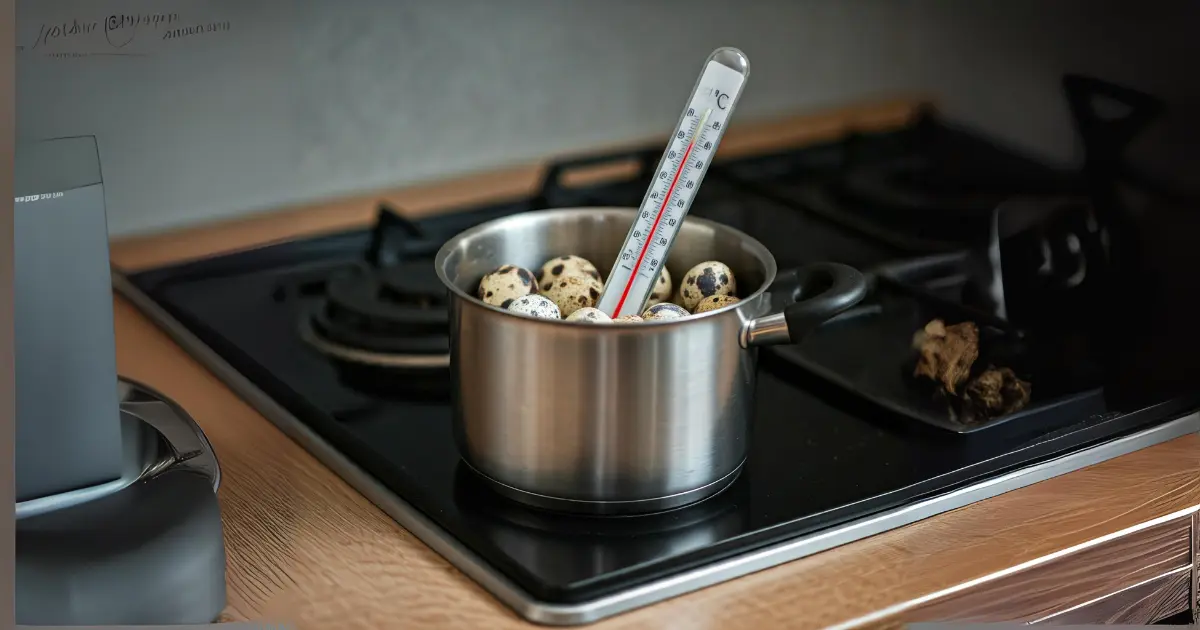
Quail eggs are nutritionally denser but smaller than chicken eggs. Below is a comparison:
| Category | Quail Eggs | Chicken Eggs |
| Size | 9–12g each | 50g each |
| Calories per Egg | 14 | 70 |
| Protein per 100g | 13g | 13g |
| Common Uses | Gourmet dishes, snacks | All-purpose, everyday cooking |
| Taste | Rich and gamy | Mild |
To know more about the difference , you can check the article linked below:
Where to Buy These Eggs
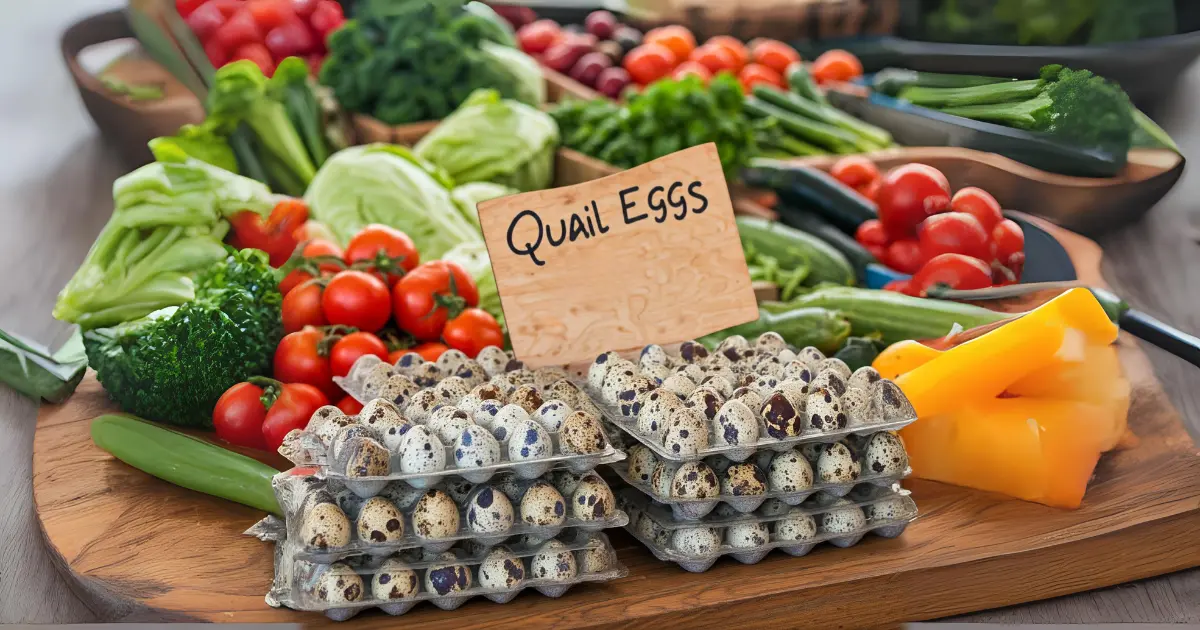
Quail eggs are available in health food stores, farmers’ markets, and online. Major retailers like Whole Foods and Trader Joe’s often carry them, especially in urban areas. They are also available through online marketplaces such as Amazon and specialty gourmet food suppliers. To know more about buying the eggs, you can check the article linked below:
Is it Safe for Everyone?
Most people can enjoy quail eggs safely. However, they should be thoroughly cooked to avoid any potential risk of foodborne illness, especially for pregnant women, young children, and immunocompromised individuals.
Incorporating Quail Eggs into Your Diet
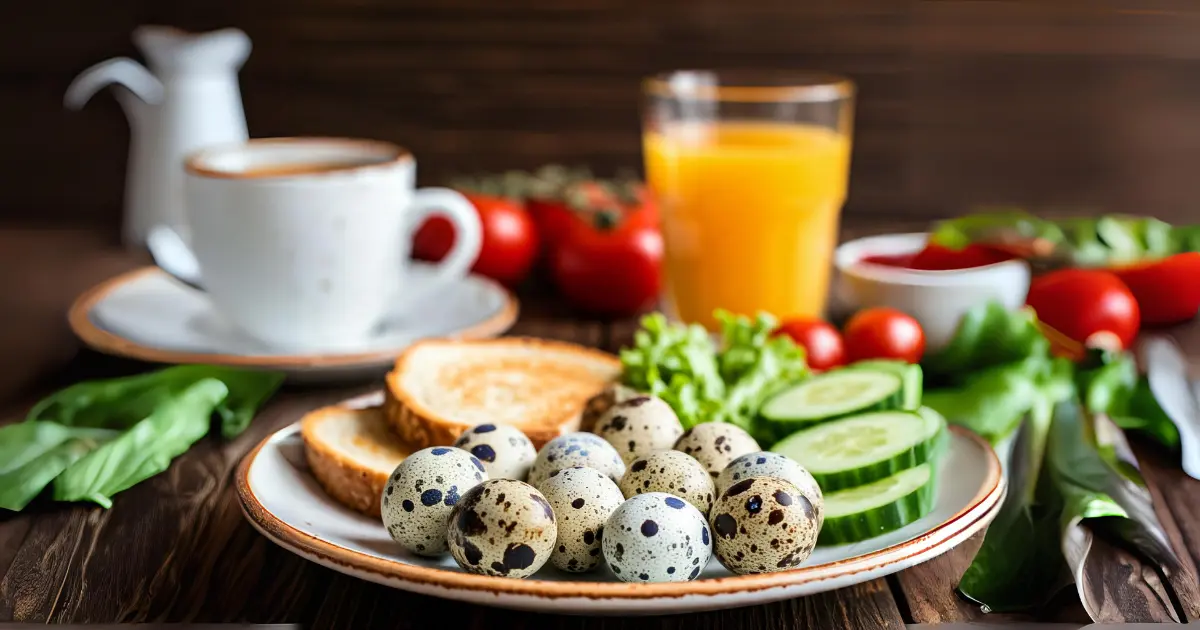
Quail eggs, with their impressive nutritional profile and unique flavor, offer a delightful and healthy way to diversify your diet. From their potential benefits for heart health and cognitive function to their versatility in various culinary applications, these tiny eggs are a treasure trove of goodness. So, why not give them a try? Whether you’re an avid cook or simply looking to explore new flavors, quail eggs are sure to impress.
Sources
https://fdc.nal.usda.gov/fdc-app.html#/food-details/172191/nutrients



